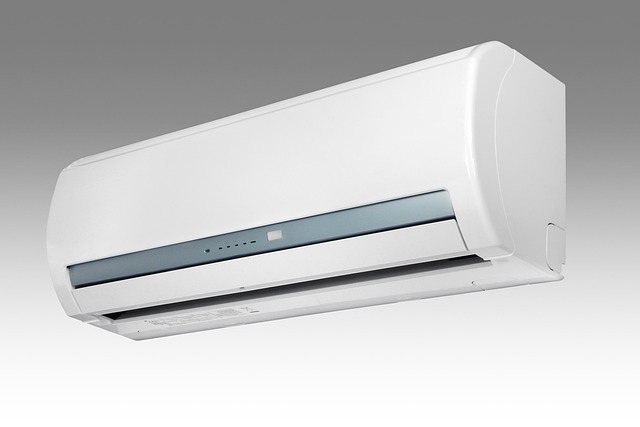HVAC
When it comes to maintaining a comfortable living environment, your HVAC system plays a crucial role in regulating temperature, humidity, and air quality throughout your home. HVAC, which stands for Heating, Ventilation, and Air Conditioning, represents one of the most significant investments homeowners make in their property's infrastructure and daily comfort.

What Does HVAC Stand For and How Does It Work?
HVAC encompasses three essential functions that work together to create optimal indoor conditions. Heating systems warm your home during cold months using furnaces, heat pumps, or boilers. Ventilation ensures proper air circulation and removes stale air while bringing in fresh outdoor air. Air conditioning cools your space during warmer periods and often includes dehumidification capabilities. These components typically share ductwork and controls, creating an integrated system that maintains consistent comfort levels throughout your home.
Why Are Regular HVAC Maintenance and Home Services Important?
Proper maintenance of your HVAC system extends its lifespan, improves energy efficiency, and prevents costly breakdowns. Regular home services include changing air filters every 1-3 months, cleaning vents and ducts, and scheduling professional inspections twice yearly. Well-maintained systems operate 15-20% more efficiently than neglected ones, translating to significant savings on utility bills. Additionally, routine maintenance helps identify potential issues before they become major repairs, ensuring your system operates safely and reliably year-round.
How to Find HVAC Contractor Services in Your Area?
Finding qualified HVAC professionals requires careful research and evaluation. Start by seeking recommendations from friends, neighbors, and local home improvement stores. Verify that potential contractors hold proper licensing and insurance coverage required in your state. Check online reviews and Better Business Bureau ratings to assess their reputation and service quality. Request detailed written estimates from multiple contractors, ensuring they include labor, materials, and warranty information. Always confirm that technicians are certified by organizations like NATE (North American Technician Excellence) for specialized expertise.
What Are the Different Types of HVAC Systems Available?
Several HVAC system types cater to different home sizes, climates, and budget considerations. Central air systems use ductwork to distribute conditioned air throughout the home and work well for larger spaces. Heat pumps provide both heating and cooling efficiently in moderate climates. Ductless mini-split systems offer zoned comfort control without requiring extensive ductwork installation. Geothermal systems utilize ground temperature stability for exceptional energy efficiency but require higher upfront investment. Hybrid systems combine heat pumps with gas furnaces, optimizing energy usage based on outdoor temperatures.
Essential HVAC Facts and Energy Efficiency Tips
Modern HVAC systems can reduce energy consumption by up to 40% compared to units manufactured 15-20 years ago. Programmable thermostats can save homeowners approximately 10% annually on heating and cooling costs by automatically adjusting temperatures based on occupancy schedules. Proper insulation and air sealing complement HVAC efficiency by reducing the workload on your system. Ceiling fans can make rooms feel 3-4 degrees cooler, allowing you to raise thermostat settings without sacrificing comfort. Regular professional tune-ups typically cost $100-200 but can prevent repairs costing thousands of dollars.
HVAC Installation and Replacement Cost Considerations
Understanding HVAC pricing helps homeowners budget for installations, replacements, and repairs effectively. System costs vary significantly based on home size, equipment quality, installation complexity, and regional labor rates. Professional installation ensures proper sizing, safety compliance, and warranty coverage that DIY approaches cannot provide.
| System Type | Size Range | Cost Estimation | Key Features |
|---|---|---|---|
| Central Air System | 2-5 Tons | $3,000-$8,000 | Whole-home comfort, ductwork required |
| Heat Pump | 2-5 Tons | $4,000-$10,000 | Heating and cooling, energy efficient |
| Ductless Mini-Split | 1-4 Zones | $2,500-$7,500 | Zoned control, no ductwork needed |
| Geothermal System | 2-6 Tons | $15,000-$25,000 | Highest efficiency, underground installation |
Prices, rates, or cost estimates mentioned in this article are based on the latest available information but may change over time. Independent research is advised before making financial decisions.
Making Informed HVAC Decisions for Your Home
Selecting the right HVAC system and contractor requires balancing upfront costs with long-term performance and efficiency benefits. Consider your home’s specific needs, including square footage, insulation quality, local climate conditions, and budget constraints. Energy-efficient systems often qualify for utility rebates and tax credits that offset initial investment costs. Professional load calculations ensure proper system sizing, preventing issues like short cycling or inadequate heating and cooling capacity. Remember that the lowest bid isn’t always the best value when quality installation and reliable service matter for long-term satisfaction and system performance.




